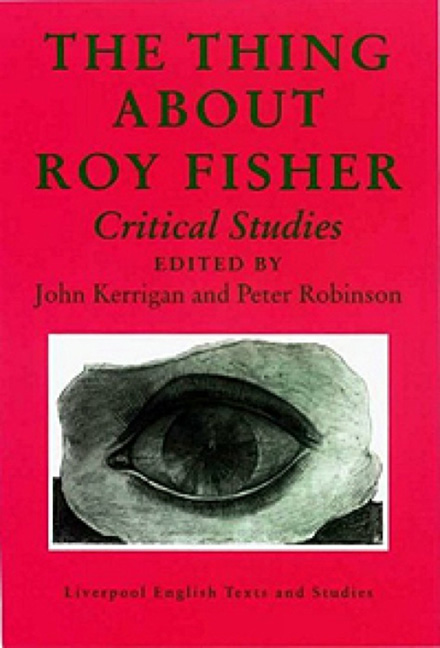Book contents
- Frontmatter
- Contents
- Notes on Contributors
- Acknowledgements
- Abbreviations
- Introduction
- 1 Roy Fisher on Location
- 2 ‘Menacing Works in my Isolation’: Early Pieces
- 3 TheWork of a Left-Handed Man
- 4 Osmotic Investigations and Mutant Poems: An Americanist Poetic
- 5 ‘Making Forms with Remarks’: The Prose
- 6 Cutting-Edge Poetics: Roy Fisher's ‘Language Book’
- 7 A Burning Monochrome: Fisher's Block
- 8 ‘The Secret Laugh of the World’
- 9 ‘Exhibiting Unpreparedness’: Self, World, and Poetry
- 10 ‘Coming into their Own’: Roy Fisher and John Cowper Powys
- 11 A Furnace and the Life of the Dead
- 12 Last Things
- Roy Fisher: A Bibliography
- Indexes
4 - Osmotic Investigations and Mutant Poems: An Americanist Poetic
- Frontmatter
- Contents
- Notes on Contributors
- Acknowledgements
- Abbreviations
- Introduction
- 1 Roy Fisher on Location
- 2 ‘Menacing Works in my Isolation’: Early Pieces
- 3 TheWork of a Left-Handed Man
- 4 Osmotic Investigations and Mutant Poems: An Americanist Poetic
- 5 ‘Making Forms with Remarks’: The Prose
- 6 Cutting-Edge Poetics: Roy Fisher's ‘Language Book’
- 7 A Burning Monochrome: Fisher's Block
- 8 ‘The Secret Laugh of the World’
- 9 ‘Exhibiting Unpreparedness’: Self, World, and Poetry
- 10 ‘Coming into their Own’: Roy Fisher and John Cowper Powys
- 11 A Furnace and the Life of the Dead
- 12 Last Things
- Roy Fisher: A Bibliography
- Indexes
Summary
When Roy Fisher was commissioned to review his own most recent collection, The Dow Low Drop, for The Rialto, a review reprinted subsequently in the 1998 Bloodaxe catalogue, he created the persona of a writer frequently going ‘to ground’, operating from ‘various positions of concealment’ and moving ‘from one patch of cover to another’. It is a persona which finds company with his earlier claim for a ‘very irresponsible flirtation with the idea of language’ as a calculated ‘anarchic’ (one of his favoured terms) gesture against the fixities of the ‘language fetishists’ and on behalf of an idea of fugitive style learned ‘very much from translatorese … a language I rather like’. Such blending and bleeding, such transitional manoeuvrings which mix and mingle with no settled place, are the features of what Fisher has called his ‘osmotic investigations’. And this osmosis, this crossing of borders and boundaries of all kinds, demands the personae not only of the fugitive and the outlaw, but of the spy, aswe are taught in ‘The Lesson in Composition’ where the spy's tactics of dissembling and obliquity are approved:
What I have been doing in theworld as long as I can remember
is to witness and make conclusions.These are things
you cannot learn unless you dissemble, especially
if you start young. Like those of a spy
my words and actions have leaned to the oblique, my troubles
to the vague and hard-to-help.
The ‘oblique’ and the ‘vague’ are major preoccupations in Fisher's stance against all forms of containment (literary, political, ideational), all issues that are seemingly salvageable from ‘the whole rubble, the whole mass of tiny interlaced circumstances that carry you along, make the present in which you exist’, anaesthetized within the specious safety of an available discourse.
- Type
- Chapter
- Information
- The Thing About Roy FisherCritical Studies, pp. 106 - 127Publisher: Liverpool University PressPrint publication year: 2000



